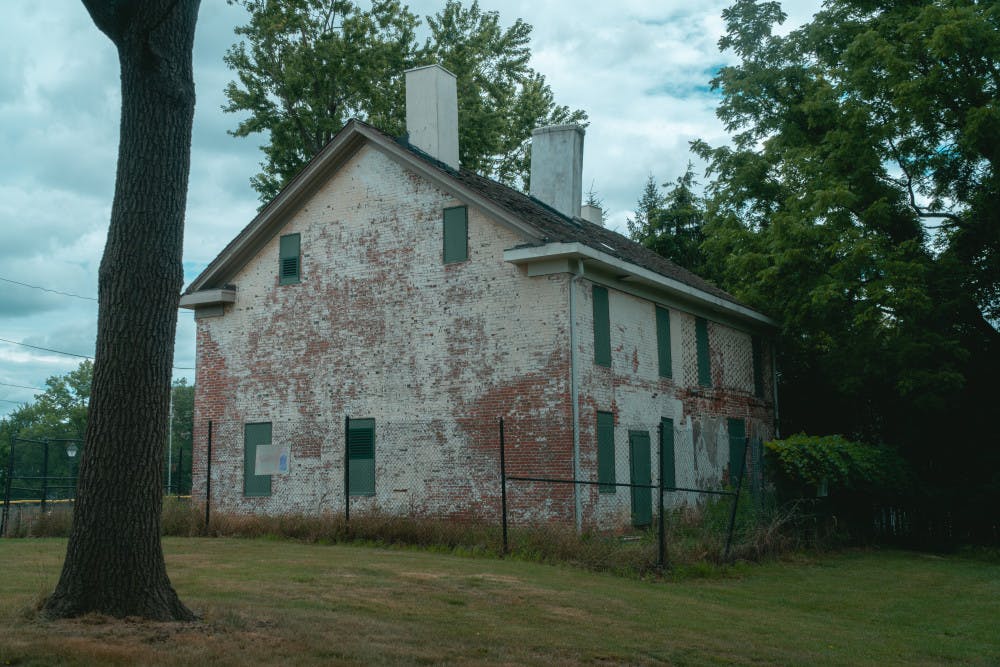By Mathias Altman-Kurosaki
Sports Editor
The College held a dialogue around allyship and racial injustice on June 21 with a panel via Zoom. The discussion was moderated by the interim director of intercultural engagement and inclusion, Marvin Carter, and the panel included seven different staff and faculty members.
“This conversation is not meant to be an attack on whiteness, but rather to talk about allyship and the establishment,” Carter said during the discussion.
Carter began by asking the panelists to describe when they first recognized that there was racial inequity in the country and how they reacted. Biology professor Marcia O’Connell spoke up about how one of her friend’s sons was arrested for a crime he didn’t commit.
“I called the newspapers and expected everyone to rally around this young Black man, but nobody did,” O’Connell said. “And the police and courts all closed ranks around the white girl who accused him and the white police officer.”
O’Connell added that she attended every court session with her friend. While her son didn’t end up spending time in jail, he was forced to plead in court despite the clerk saying that everyone in the courtroom knew he was innocent.
“This was a huge wake-up call to me that I can be as supportive as I can and always ask questions,” O’Connell said.
Christine Nye, the interim assistant director of student conduct, said that she didn’t witness racial inequity until she went to graduate school in the south.

“I witnessed it in a meeting where someone with much more authority was addressing a student with aggression because the student was a Black woman,” Nye said. “I didn’t have the confidence as a 23-year-old graduate student 15 years ago, but now I have different capital to step up and intervene and call out wrong behavior.”
When discussing why racism is such a big problem in the U.S., residence director Alex Wehrenberg stressed the importance of changing people’s minds to be more empathetic toward others.
“It’s systemic: it’s very much a case of nature versus nurture,” Wehrenberg said. “If you call someone out for being racist, they’re not learning. It may feel like talking to a brick wall, but as long as you’re making an impact on someone, it is going to ease the pain and process that it’s a large problem we call can fix.”
Carter said that it’s important that people don’t retreat to safety, privilege and quietness, but rather, there has to be a sense of continuation.
“If we’re all moving in one direction and we see an area or someone starting to fall behind, that’s an opportunity for allies to say that we can’t let it fall down, that there’s more at stake and more to be done,” Carter said. “Wherever the opportunity falls, it’s the responsibility of those in the majority position to say that the fight can’t stop now.”
Sociology professor George Leader then brought up the conversation of the William Green plantation. Recently, rising junior nursing major Caitlyne Gomez created a petition that calls to reform the William Green House, which was formerly the house of a slave plantation, into a museum of African American history. As of June 29, the petition has over 2,100 signatures.
“I think we should turn Green Farmhouse into an education center so that people can learn about history and the wrongs that happened and turn it into a more positive light,” said development associate Karen Paterson.
Carter said that students at the College should feel comfortable having conversations about these issues with the administration.
“When issues of racism start to rise, we have a zero-tolerance policy so that students feel support from the institution,” Carter said. “You know what we stand for, you know what we don’t tolerate, and we know what you will call out for.”
In the panel’s closing remarks, chemistry professor Benny Chan said that society needs to do more than just posting on social media, and someone must be the person to start pushing a movement forward.
“Superficial posting on social media isn’t enough. We all have a lot of self-work to do as a community,” Chan said. “There are other marginalized groups out there, and it’s hard to step outside your identity, but you must step outside your own personal identities.”
Carter concluded the discussion by saying that he believes that there is a path to reconciliation, and that conversations like these help the College community get there.
“If you’re not a part of these conversations, you are already missing the boat for change,” Carter said. “We cannot keep the circle or train going around, waiting for you to get on.”







